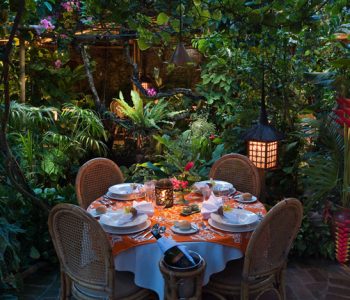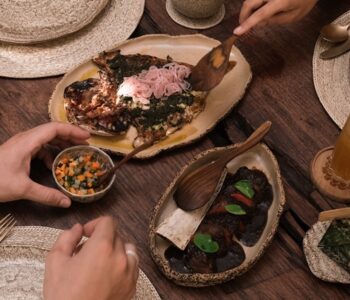Since Covid penetrated the country, I often go to Sanur. I already have a favourite spot there: the soft, empty chairs from the Hotel Sindhu café, right on the beachfront. There, I look pensively out to where the land, sea and sky meet. I contemplate nature, the meaning of life and death.
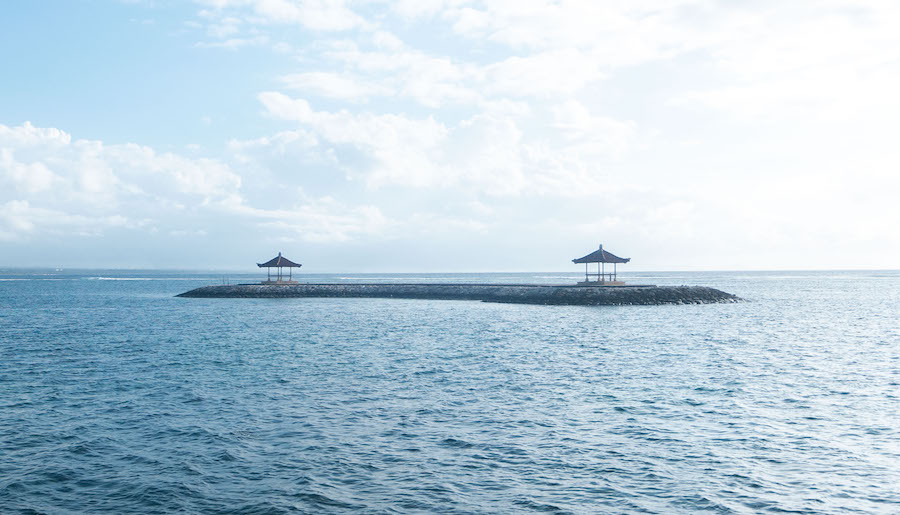
From my favourite chair, I am blessed with views of the majestic mountain soaring high. Mount Agung is its name, surrounded by pillows of white clouds that seem reluctant to cover its sacred shoots. How reassuring that view is, I thought.
Having just been stunned for a moment, my eyes also like to turn to the sea, towards the stretch of coastline that chases the far end of the horizon, followed by a line of ripples that indicate a rock formation penetrating the surface of the water. The panorama then expands into two bands of colours, one indigo blue for the sea, the other blue-grey for the sky, which together appeared to divide the boundless expanse of the Indian Ocean. Closer, dozens of small dots appear along the coast: the afternoon fishermen, soaking in thigh-deep water. How insignificant is the human toil before the Creator of the Universe, I thought, feeling humbled by the scenes that lay before me.
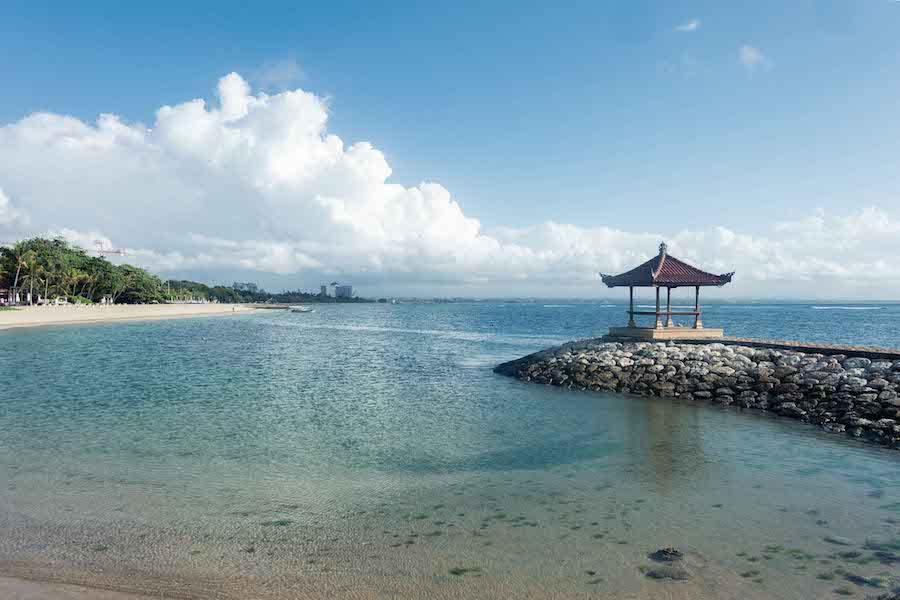
For decades, I haven’t seen Sanur as beautiful as this pandemic period. Usually very busy, all day long the tourists milling about with the local traders. Too busy for me. Now, on the contrary, it is quiet, except in the afternoon. So I often come to Sindhu Beach, avoiding Covid-19, and let go of my longing for the old poet of the ‘voice of time’, friends debating about where the world is, what state we are in, and in the name of what politics is hatred here and there. Cafe Sindhu is the place where we, together or sometimes five or six of us, when busy, gather to debate so that we feel we are still part of the world’s consciousness.
However, even though it isn’t crowded, we are never alone. From the coastal corridor, cyclists often appear, pedestrians herd their pet dogs, or breathe the cool sea air. The edge of the sand is no less crowded, a few of them walk back and forth along the beach, glancing briefly at us, then walking away offering smiles to other twilight enthusiasts.
Recently I was in Sanur again, sitting alone contemplating nature, when an old woman approached me with a typical Balinese smile. I greeted her, ”Demen melali-melali di pasih, Ibu?” (do you enjoy walking along the beach, missus?). She gasped in surprise, fell silent, her expression stiffened, then she slowly retreated with an embarrassed look, with a sudden sad expression.
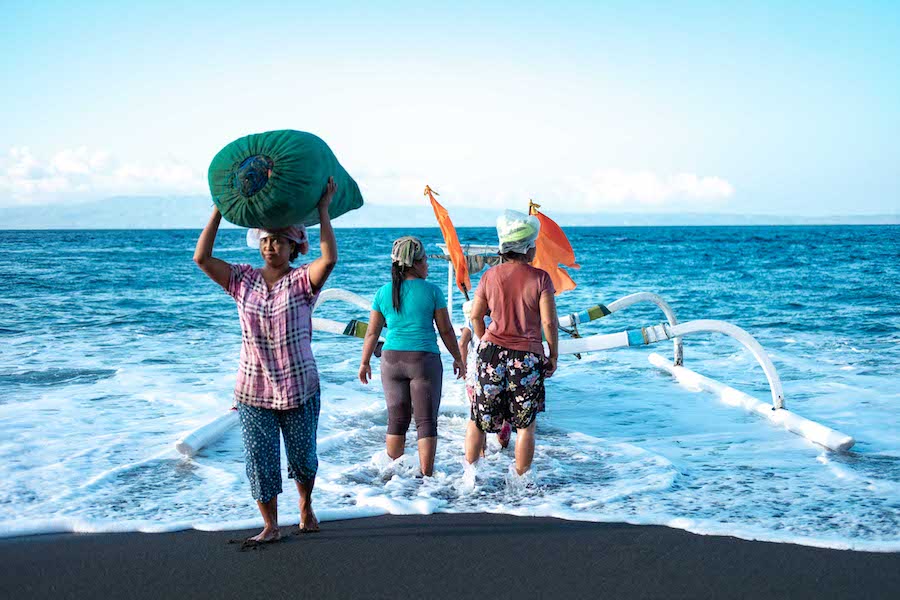
From behind came a chuckle from the café waiter. “That old lady was shocked to hear you speak Balinese. If there are other foreigners, she approaches asking for money. Approaching you, she is embarrassed!” Wow! I was shocked too, ”Luckily there aren’t many people like that!” I answered. “Wrong, mister,” said the waiter interrupting my sentence, “You see the people bathing in the sea looking for fish, right?” I turned to look at my favourite vista, where people were indeed half submerged in the sea, seemingly in search for something. “They are all looking for extra food, mister. They are all hungry”.
“Oh my God!” I thought to myself. I have been to this beach for months… and for months I was amazed by the views, the nature, the tranquility. For months I argued about beauty, culture and social justice. But for months I have been blind.
Yes… Look at us, oh God. Why must others experience difficulty for us to feel empathy? Why must knowledge be part of ignorance? Why must enlightenment be part of darkness? I ask you, oh God, is it time for you to show us your presence?
Do you want to help people in Bali?
Please check our article on which organisations are providing food and support for vulnerable communities around the island.





